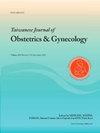子宫内膜癌分子分型和2023年FIGO分期:重新定义辅助治疗
IF 2.2
4区 医学
Q2 OBSTETRICS & GYNECOLOGY
引用次数: 0
摘要
2023年对子宫内膜癌FIGO分期系统的更新引入了重要的变化,特别是在早期疾病分类方面,现在更有效地与组织学类型和分子特征相一致,以指导治疗策略。近年来,分子分类,包括极点突变、错配修复缺陷(dMMR)和p53异常的鉴定,已经成为子宫内膜癌患者定制辅助治疗的必要条件。新发FIGO I期非tp53突变肿瘤和I/II期pole突变肿瘤的女性通常预后良好,通常不推荐辅助治疗。与IIB期疾病的既定辅助治疗相比,围绕无POLE突变的IIA期和IIC期患者的治疗存在争议。实际数据表明,与观察相比,辅助放疗或化疗在这些病例中可能没有显著的益处。对于III期pole突变肿瘤,研究表明其预后良好,复发后的挽回率很高,这就提出了在完全手术切除后是否需要辅助治疗的重要问题。对于III/IV期dMMR患者,如RUBY、NRG-GY018、AtTEnd和ENGOT-en11/GOG-3053/KEYNOTE-B21试验所示,免疫检查点抑制剂在化疗中添加后,已显示出无进展生存期和总生存期的显著改善。这些发现巩固了免疫疗法在这一分子亚群中的应用。在非特异性分子谱组中,激素受体状态已成为一个重要的预后标志物。雌激素受体阳性肿瘤在这一亚组中对黄体酮治疗表现出良好的反应,这提高了激素治疗在某些患者中替代化疗的可能性。最后,与预后不良相关的tp53突变肿瘤患者正在RAINBO p53abn-RED试验中进行评估,以评估在辅助放化疗中添加奥拉帕尼是否可以改善这一高危人群的预后。总之,将分子分型与2023 FIGO分期系统相结合正在重塑子宫内膜癌的辅助治疗方法,实现更精确和个性化的治疗策略,从而改善患者的预后。本文章由计算机程序翻译,如有差异,请以英文原文为准。
Molecular subtyping and the 2023 FIGO staging in endometrial cancer: Redefining adjuvant therapy
The 2023 update to the FIGO staging system for endometrial cancer has introduced important changes, particularly in classifying early disease, which now more effectively aligns with histological types and molecular profiles to guide treatment strategies. In recent years, molecular classification, including the identification of POLE mutations, mismatch repair deficiency (dMMR), and p53 abnormalities, has become essential in tailoring adjuvant therapies for patients with endometrial cancer. Women with new FIGO stage I non-TP53-mutated tumors, and stage I/II POLE-mutated tumors generally have excellent outcomes, and adjuvant therapy is typically not recommended. In contrast to the established adjuvant treatment of stage IIB disease, controversy surrounds the treatment of stage IIA and IIC patients without POLE mutations. Real-world data suggest that adjuvant radiotherapy or chemotherapy may offer no significant benefit compared to observation in these cases. For stage III POLE-mutated tumors, studies have demonstrated favorable prognoses and high salvage rates upon recurrence, raising important questions about the necessity of adjuvant treatment when complete surgical resection is achieved. For stage III/IV dMMR patients, immune checkpoint inhibitors have demonstrated substantial improvements in both progression-free survival and overall survival when added to chemotherapy, as shown in the RUBY, NRG-GY018, AtTEnd, and ENGOT-en11/GOG-3053/KEYNOTE-B21 trials. These findings have solidified the use of immunotherapy in this molecular subgroup. In the non-specific molecular profile group, hormone receptor status has emerged as a significant prognostic marker. Estrogen receptor-positive tumors in this subgroup have shown favorable responses to progestin therapy, raising the possibility that hormonal therapy could replace chemotherapy in selected patients. Lastly, patients with TP53-mutated tumors, which are associated with poor prognosis, are being evaluated in the RAINBO p53abn-RED trial to assess whether the addition of olaparib to adjuvant chemoradiation can improve outcomes in this high-risk group. In conclusion, integrating molecular subtyping with the 2023 FIGO staging system is reshaping the approach to adjuvant therapy in endometrial cancer, enabling more precise and individualized treatment strategies that improve patient outcomes.
求助全文
通过发布文献求助,成功后即可免费获取论文全文。
去求助
来源期刊

Taiwanese Journal of Obstetrics & Gynecology
OBSTETRICS & GYNECOLOGY-
CiteScore
3.60
自引率
23.80%
发文量
207
审稿时长
4-8 weeks
期刊介绍:
Taiwanese Journal of Obstetrics and Gynecology is a peer-reviewed journal and open access publishing editorials, reviews, original articles, short communications, case reports, research letters, correspondence and letters to the editor in the field of obstetrics and gynecology.
The aims of the journal are to:
1.Publish cutting-edge, innovative and topical research that addresses screening, diagnosis, management and care in women''s health
2.Deliver evidence-based information
3.Promote the sharing of clinical experience
4.Address women-related health promotion
The journal provides comprehensive coverage of topics in obstetrics & gynecology and women''s health including maternal-fetal medicine, reproductive endocrinology/infertility, and gynecologic oncology. Taiwan Association of Obstetrics and Gynecology.
 求助内容:
求助内容: 应助结果提醒方式:
应助结果提醒方式:


